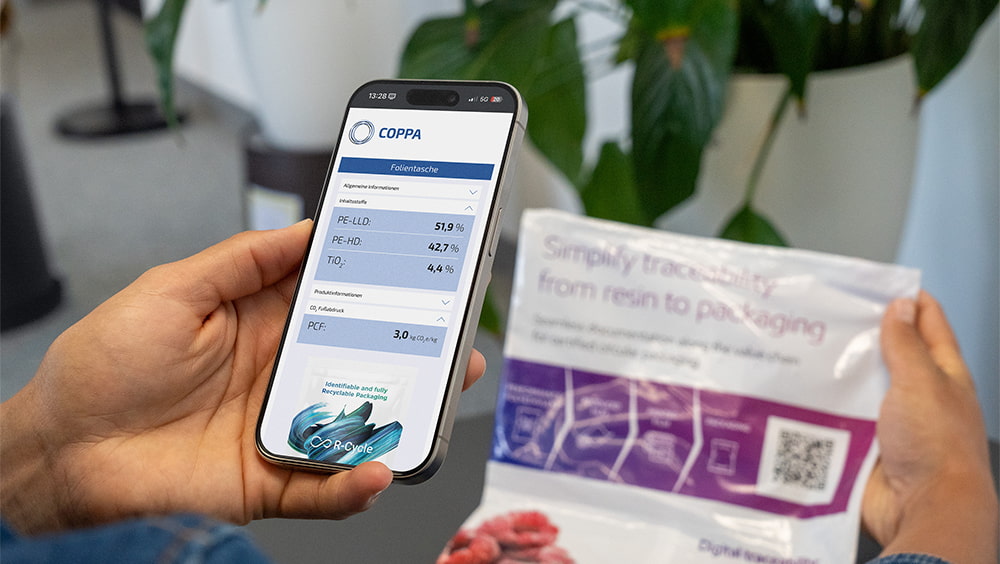Digital product pass for plastic packaging materials to simplify the use of recycled materials
Digitalisation and transparent product passports can make a decisive contribution to the safe use of plastic recyclates in food packaging. The COPPA project, in which the SKZ Plastics Center is also involved, is addressing this crucial point and creating a digital platform that passes on the digital product pass for packaging materials across several stages of the value chain. Together with eleven other projects funded by the Federal Ministry of Food and Agriculture (BMEL), COPPA has therefore been selected for additional support in the RePack network.

The COPPA project is creating a digital platform that shares the digital product pass for packaging materials across several stages of the value chain. (Photo: Luca Hoffmannbeck, SKZ)
BMEL's RePack network supports the COPPA innovation project led by the SKZ
Packaging waste is symbolic of the poor image of plastic materials. This is hardly surprising, since the required quantity is currently constantly increasing and packaging is mostly used only once. The potential offered by plastics, which tend to be easy to recycle, remains largely untapped. In the area of food packaging in particular, the use of secondary plastics is still too low at just under 9%. “Food packaging is only used for a short time and is rarely reused. Although about two-thirds are recycled, the materials are rarely used again in packaging,” explains Frieder Rubik, an expert in sustainable production and consumption at the Institute for Ecological Economic Development (IÖW) and project manager of the Repack network. Measures such as the introduction of mandatory recyclate quotas through the Packaging and Packaging Waste Regulation, which is set to come into force in 2027, should change this.
The unclear origin of recyclates as a difficulty
The dilemma for manufacturers and consumer advocates is to guarantee safe, functional packaging while also using secondary materials in line with a circular economy. The difficulty here is the mostly unclear origin and potentially critical previous use of recyclates for food contact. A digital product passport can verify the origin of the recyclate and its quality, thus enabling an effective circular economy for packaging materials.
Representation of the material composition of a product using COPPA
The COPPA project, led by SKZ, addresses this issue. Together with six partners, the Würzburg-based institute is developing a platform for a digital product passport for food packaging. The platform enables a representation of the material composition of a product and the origin of the materials. An additional direct calculation of the CO2 footprint is also possible. “The aim of the COPPA project is to develop an open Circular Collaboration Platform (CPP) that will help to ensure that secondary materials for and from food packaging can be reused safely and in line with requirements, that the CO2 footprint is automatically displayed and that the recyclate content of the packaging can be verified with technical validation,” explains Sophia Botsch, Scientist at SKZ.
Transfer network to create synergies between projects
Twelve projects funded by the BMEL, including COPPA, are developing packaging innovations for the food industry: from bio-based, compostable packaging and recycling of the materials used, to reusable systems or the replacement of plastic, for example with paper, where this makes sense. The networking and transfer measure RePack-Netzwerk on behalf of the BMEL has the goal of supporting innovation processes and making recommendations for action for politics, business and consumers. The transfer network is intended to create synergies between projects in order to leverage further potential and develop food packaging for the future.
Further information about the RePack network and the research area of circular economy at SKZ


